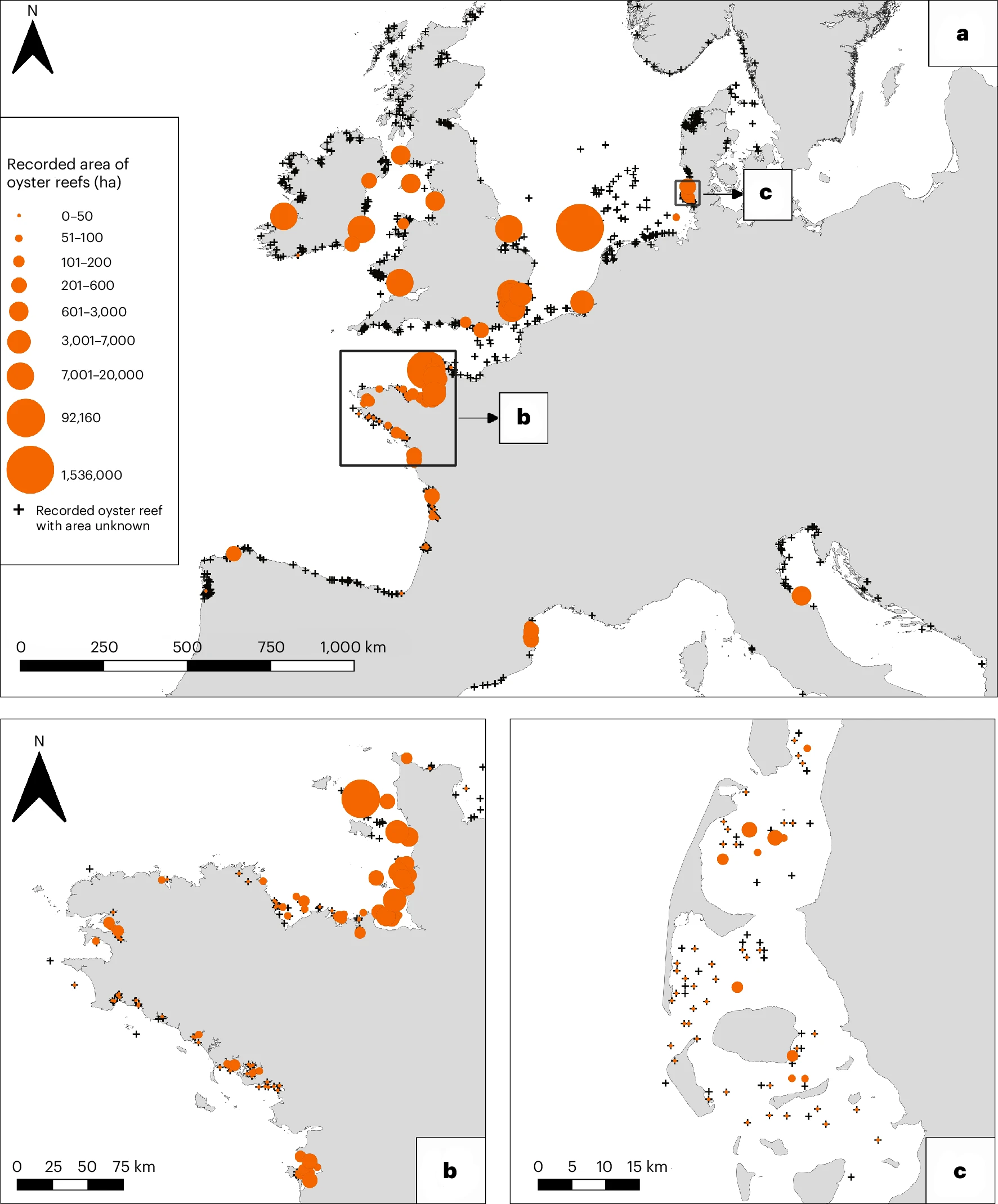
A groundbreaking study published in Nature Sustainability has unveiled the extensive historical presence of European oyster reefs, highlighting their significant ecological role and the profound impact of their decline. By analyzing over 1,600 records spanning 350 years, researchers mapped the historical distribution of European flat oyster (Ostrea edulis) reefs across a 10 km² resolution.
The findings reveal that these reefs once covered more than 1.7 million hectares along the coasts of France, Denmark, Ireland, and the United Kingdom, serving as vital three-dimensional habitats that supported diverse marine life.
The study underscores how the loss of these complex structures has led to a ‘flattening’ of coastal ecosystems, emphasizing the need for informed restoration efforts to revive these crucial marine habitats.
Read the article HERE


Related Articles
Announcing OPI XI: Vancouver Island, Canada 15-19 June 2026
Oceans Past XI: Coming in 2026Dear Members and Friends of the Oceans Past Initiative, We are delighted to announce the dates for our next conference, which will be hosted at the University of Victoria, Vancouver Island, Canada. Oceans Past XI: Ocean-connected...
Sentinels of Change: What Sea Lions and Fur Seals Can Tell Us About 770 Years of Ocean History
A new study in Marine Ecology Progress Series takes a deep dive into the long-term ecological changes in New Zealand’s marine ecosystems, through the diets of two iconic predators: the New Zealand sea lion and fur seal. By analyzing stable isotopes from bones spanning...
New Study Reveals Earliest Evidence of Whale Bone Working in Late Paleolithic Europe
New Study Reveals Earliest Evidence of Whale Bone Working in Late Paleolithic Europe A new paper published in Nature Communications presents groundbreaking evidence of whale bone working in the Bay of Biscay during the Late Paleolithic. Through a detailed multiproxy...



